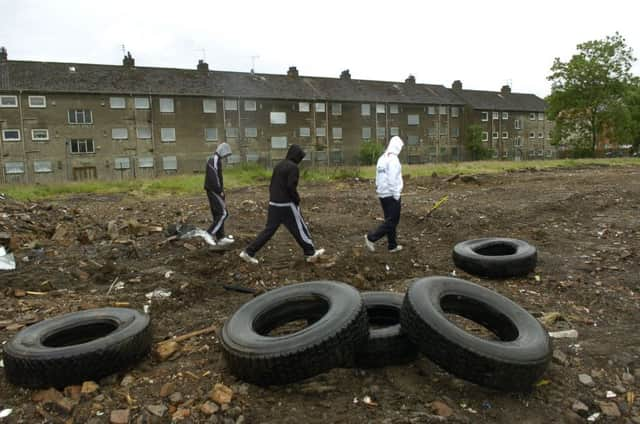Ilona Amos: Environmental poverty must be tackled head on


The SNP is pushing the Fairer Scotland initiative, which aims “to mobilise the nation to help tackle the scourge of intergenerational poverty and create fairer opportunities for all”. According to official figures, a sixth of Scots live in poverty and the number using food banks is 20 times higher now than three years ago.
But poverty is not just about money. There are many factors, though it is generally the same individuals who bear the brunt of all of them. So in a country whose national identity is so entwined with its natural assets, it’s perhaps surprising that concerns over environmental deprivation are not a bigger part of the debate.
Advertisement
Hide AdAdvertisement
Hide AdThe worst health records are found in the poorest communities, stemming from a combination of low income, poor diet, lack of exercise and various social problems. But impoverished areas are often less green as well.
Take air pollution as an example. Breathing in poisonous particles has been estimated to cause as many as 3,500 early deaths in Scotland every year. But bad air quality has a disproportionate toll on the poorest people and so acts to exacerbate social injustice.
The body’s ability to fight hazards like air pollution are partly controlled by genetics, but a recent report by the Royal College of Physicians found there are groups who are particularly vulnerable to its harmful effects.
As well as children, the elderly, those with heart and lung problems and the overweight, evidence suggests deprived households are more at risk than their more affluent counterparts. This is partly driven by poor diet, but also because they often live in places where they are more exposed to toxic fumes – near busy roads or industrialised neighbourhoods.
All of these factors add up, so the most disadvantaged people are under the greatest threat from air pollution and its damaging health consequences.
Numerous studies have demonstrated the benefits of nature and green spaces on both physical and mental well-being. However, the effects of environmental protection and improvement are all too often enjoyed mostly by the better off members of society. High earners have the luxury of being able to move away from an unhealthy local environment. The poor live where they have to.
This needs to change if we are to create a more equal society. No social group should suffer a disproportionate burden of negative environmental impacts. So as we approach the Scottish elections, it’s time for all parties to set out their environmental aspirations.
Yes, there must be a focus on protecting native species and halting loss of biodiversity. Yes, we should strive for a sustainable economy. Yes, we need eco-friendly energy solutions. Yes, we must cut greenhouse gas emissions. But access to green spaces and fresh air should also be a fundamental right of every citizen.
Advertisement
Hide AdAdvertisement
Hide AdScottish Environment Link, a coalition of 36 environmental groups, has laid out a six-point manifesto ahead of May’s vote. Members are calling for an Ending Environmental Poverty Act. It’s a no-brainer if you ask me. Let’s safeguard our right to benefit from our little piece of the planet as nature intended.